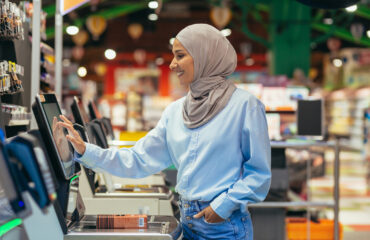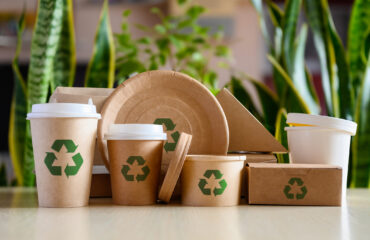MPs and environmental organisations have spoken out against British supermarkets’ “unambitious” sustainability initiatives.
What are brands like Tesco, Sainsbury’s, and Marks & Spencer doing to improve their efforts?
A recent report by the Environment, Food & Rural Affairs Committee (Efra), a cross-party parliamentary group, has called recent efforts by supermarkets to reduce plastic waste ‘lacklustre’.
But plastics pose a substantial threat to our climate, and there is significant public concern over plastics and the impact they have on the environment. Supermarkets have always been big contributors to plastic pollution. This makes them key to fighting the problem.
And it’s not just Efra that’s found supermarkets lacking when it comes to sustainability targets.
Following the Efra report, the WWF released their own highlighting that supermarket supply chain emissions have gone up – despite critical environmental pledges.
What did the Efra and WWF reports say?
Firstly, Efra’s report, entitled ‘The price of plastic,’ details the various commitments supermarkets have made to combat plastic pollution, as well as their progress so far.
Unfortunately, their findings show that progress has stalled. This is despite the supermarkets’ voluntary commitments to the UK Plastics Pact (UKPP) and the sustainability targets it sets out for 2025.
For example, a key goal of the UKPP is that 70% of signatories’ plastic packaging will be effectively recycled by 2025. Progress currently stands at 52%. This does initially look promising – until you realise that this number hasn’t budged since 2020.
Meanwhile, according to the WWF, supermarkets that pledged last year to halve the environmental impact of food shopping have also faced setbacks.
While brands, including Tesco, Sainsbury’s, Waitrose, Co-Op, and Marks & Spencer, have made good progress in some areas, supply chain emissions have gone up instead of down.
What are supermarkets doing to improve?
Clearly, supermarkets have a lot to do to get back on track. So, it’s heartening to hear that they have acted so swiftly.
Signatories to the WWF’s pledge have agreed to work together in their pursuit of reducing environmental impact.
In a joint statement, the CEOs of these five major British supermarkets said…
“WWF’s findings leave no doubt of the scale of the task we collectively agreed to undertake when it comes to improving our food supply chains and enabling a sustainable shopping experience for our customers.
“We restate our commitment to work with WWF, our customers, suppliers, and the UK Government to halve the environmental impact of UK shopping baskets by 2030. We believe that this goal is achievable and is vital for the future of nature, our planet, our businesses and, crucially, our customers.”
Their plans include:
- Supporting their suppliers to adopt science-based targets to reach net-zero climate emissions by 2050.
- Working with the Water & Resources Action Programme (WRAP) to support their suppliers to set these targets, take high-impact actions and report data.
- Working with WRAP to develop and deliver an ambitious climate action programme for the grocery retail sector.
Hitting sustainability targets in FMCG
Supermarkets have a big part to play in reducing the environmental impact of food shopping – but so do the brands they stock.
Innovation is essential for food and drinks brands that want to make meaningful progress towards key sustainability targets. That’s why you’ll need the right people on board, to help steer your business in the right direction.
Get in touch today to find out what we can do to find people with the knowledge, skillset, and values to drive your food and drinks business towards a greener future:
Call us: 0333 772 7200





